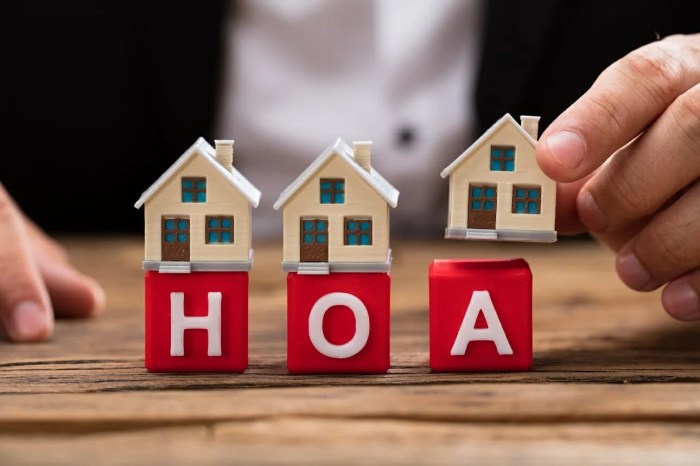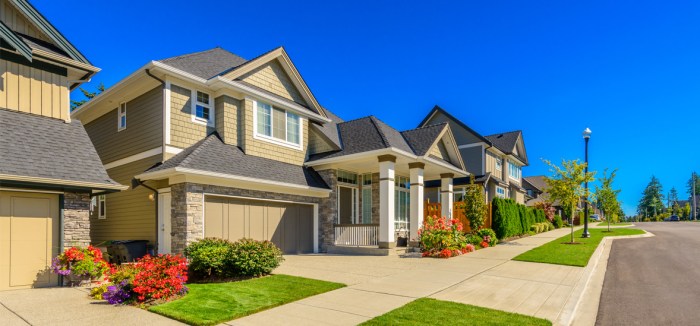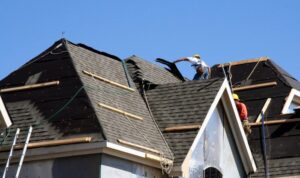Embark on a journey into the world of property management for homeowners associations with this comprehensive guide. From defining the role of property managers to exploring the responsibilities and benefits, this topic delves into the core aspects of managing a successful community.
Overview of Property Management for Homeowners Associations
Property management for homeowners associations involves the professional management, operation, and oversight of residential properties within a community or neighborhood governed by a homeowners association (HOA). Property managers play a crucial role in ensuring the smooth functioning and maintenance of common areas, amenities, and shared facilities within the community.
They act as a liaison between homeowners, the HOA board, and external service providers to uphold the rules and regulations set forth by the association.
Role of Property Managers
Property managers are responsible for a wide range of tasks to ensure the efficient operation of homeowners associations. Some of their key responsibilities include:
- Collecting dues and fees from homeowners to maintain communal areas and amenities.
- Enforcing community rules and regulations, including architectural guidelines and landscaping standards.
- Coordinating maintenance and repairs for common areas, such as parks, pools, and clubhouses.
- Responding to homeowner inquiries, concerns, and complaints in a timely and professional manner.
- Managing vendor contracts and overseeing projects to improve the community's overall value and appeal.
Benefits of Hiring a Property Manager
Hiring a property manager for a homeowners association offers several advantages, including:
- Expertise and experience in managing community associations effectively.
- Time and resource savings for the HOA board members who may not have the necessary skills or availability to handle day-to-day operations.
- Ensuring compliance with local laws, regulations, and HOA governing documents to avoid legal issues and penalties.
- Enhanced property values and resident satisfaction through well-maintained common areas and amenities.
- Professional guidance and support in decision-making processes to improve the quality of life within the community.
Responsibilities of Property Managers
Property managers play a crucial role in ensuring the smooth operation of homeowners associations. They handle a variety of tasks to maintain and enhance the value of the properties within the community.
Financial Management
Property managers are responsible for overseeing the financial aspects of homeowners associations. This includes creating and managing budgets, collecting dues and fees, paying bills, and preparing financial reports. Effective financial management is essential to ensure the financial health of the association and to fund necessary repairs and maintenance projects.
Enforcement of Rules and Regulations
Property managers are tasked with enforcing the rules and regulations set forth by the homeowners association. This involves ensuring that residents comply with the governing documents, such as the CC&Rs (Covenants, Conditions, and Restrictions). Property managers may issue warnings, fines, or take legal action against violators to maintain a harmonious and orderly community.
Communication and Conflict Resolution

Effective communication is key in maintaining a harmonious relationship between property managers and homeowners within associations. It is essential for property managers to establish open lines of communication to address issues promptly and efficiently. Transparency and clear dialogue can help prevent misunderstandings and foster a positive environment within the community.
Effective Communication Strategies
- Regular newsletters or emails to update homeowners on important information and upcoming events.
- Utilizing online portals or platforms for easy access to documents, announcements, and communication.
- Scheduling regular meetings or town halls to discuss concerns and gather feedback from homeowners.
Common Conflicts and Resolution
- Disagreements over property maintenance responsibilities.
- Issues regarding noise complaints or disruptive behavior.
- Conflict over financial matters such as budgeting and dues.
Importance of Transparency and Open Dialogue
Maintaining transparency and open dialogue is crucial in managing homeowners associations as it builds trust and fosters a sense of community. When homeowners feel heard and informed, they are more likely to collaborate and work together towards common goals. Property managers should strive to keep lines of communication open and transparent to ensure a harmonious living environment for all residents
Maintenance and Repairs

Property managers in a homeowners association play a crucial role in ensuring the maintenance and repair of properties within the community. They are responsible for maintaining the overall appearance and functionality of the common areas and amenities, as well as addressing any repairs needed in individual units.
Maintenance Responsibilities
Property managers are tasked with conducting regular inspections of the property to identify any maintenance issues that need attention. This can include tasks such as landscaping, cleaning common areas, and ensuring that amenities like pools or gyms are in good working condition.
- Regularly inspecting common areas and amenities to identify maintenance needs.
- Scheduling routine maintenance tasks such as landscaping or cleaning.
- Coordinating with vendors and contractors for larger maintenance projects.
Handling Repairs and Renovations
When repairs or renovations are needed within the community, property managers are responsible for overseeing the process from start to finish. This involves coordinating with contractors, obtaining bids for the work, and ensuring that repairs are completed in a timely manner.
Property managers must ensure that repairs are done efficiently and effectively to maintain property values and resident satisfaction.
Upkeep of Common Areas and Amenities
Maintaining the common areas and amenities within a homeowners association is essential for creating a pleasant living environment for residents. Property managers must ensure that these areas are well-maintained and safe for residents to use.
- Scheduling regular cleaning and maintenance of common areas.
- Addressing any safety concerns in common areas promptly.
- Ensuring that amenities like pools or playgrounds are in good working order.
Legal Compliance and Insurance
When it comes to property management for homeowners associations, legal compliance and insurance play a crucial role in ensuring the smooth operation of the community. Property managers need to adhere to key legal requirements and oversee the necessary insurance coverage to protect the association and its members.
Key Legal Requirements for Property Managers
- Property managers must ensure compliance with federal, state, and local laws related to property management, including fair housing laws, landlord-tenant regulations, and zoning ordinances.
- They are responsible for maintaining accurate and up-to-date records, financial reports, and meeting minutes to comply with legal requirements.
- Property managers must also handle legal issues such as evictions, disputes, and contract negotiations on behalf of the homeowners association.
Insurance Coverage for Homeowners Associations
- Property managers play a vital role in ensuring that homeowners associations have the necessary insurance coverage, including property insurance, general liability insurance, and directors and officers (D&O) insurance.
- They work with insurance agents to review policies, identify gaps in coverage, and secure appropriate insurance to protect the association from potential risks and liabilities.
- Property managers also assist in filing insurance claims and coordinating with insurance adjusters in the event of property damage or other covered incidents.
Role in Ensuring Compliance with Local Laws
- Property managers are responsible for staying informed about changing laws and regulations that affect homeowners associations and ensuring that the association remains in compliance with all legal requirements.
- They work closely with legal counsel to address legal issues, interpret complex regulations, and implement necessary changes to ensure compliance with local laws.
- Property managers also assist the homeowners association board in drafting and revising governing documents, policies, and procedures to align with legal requirements.
Conclusive Thoughts
In conclusion, property management for homeowners associations plays a crucial role in maintaining the harmony and functionality of residential communities. By understanding the key responsibilities, communication strategies, maintenance tasks, and legal compliance involved, homeowners associations can thrive under the guidance of skilled property managers.
Frequently Asked Questions
What are the typical duties of property managers in homeowners associations?
Property managers handle tasks such as maintenance, financial management, enforcing rules, and ensuring the upkeep of common areas.
How do property managers deal with conflicts within homeowners associations?
Property managers use effective communication strategies to resolve conflicts and promote transparency among homeowners.
What legal requirements do property managers need to adhere to in managing homeowners associations?
Property managers must ensure compliance with local laws, regulations, and insurance coverage for the association.












